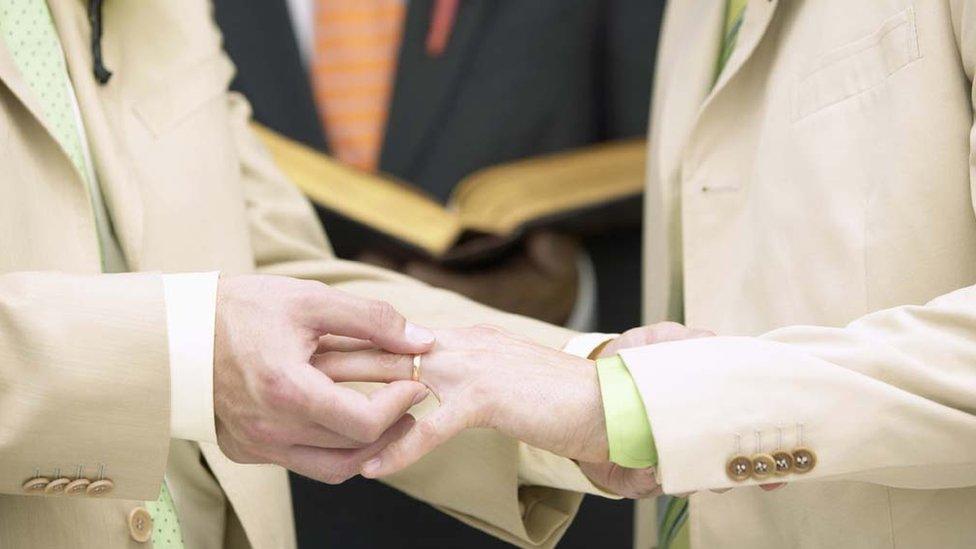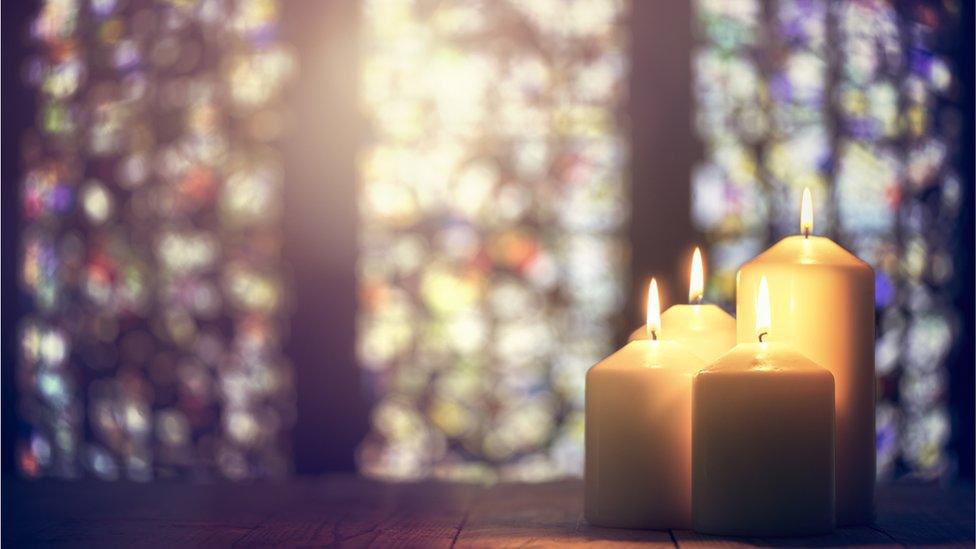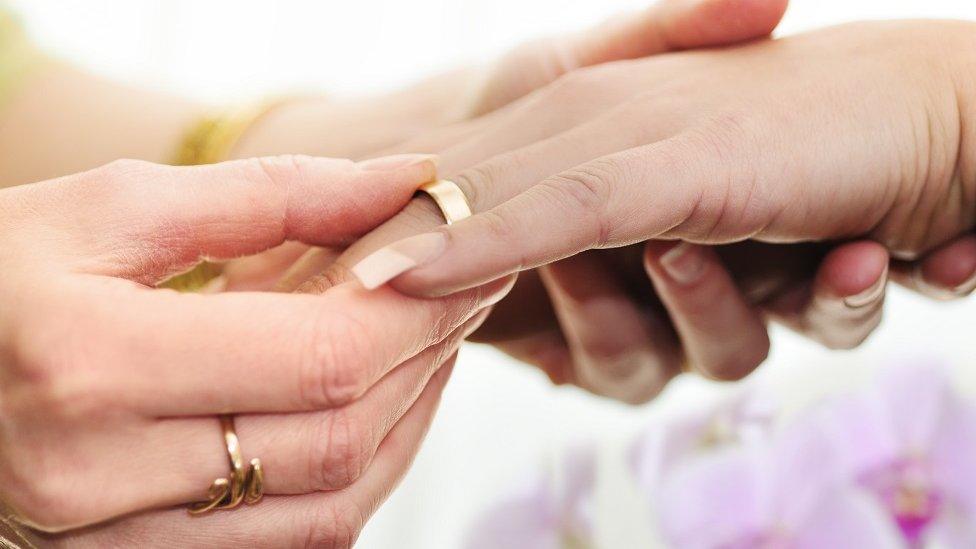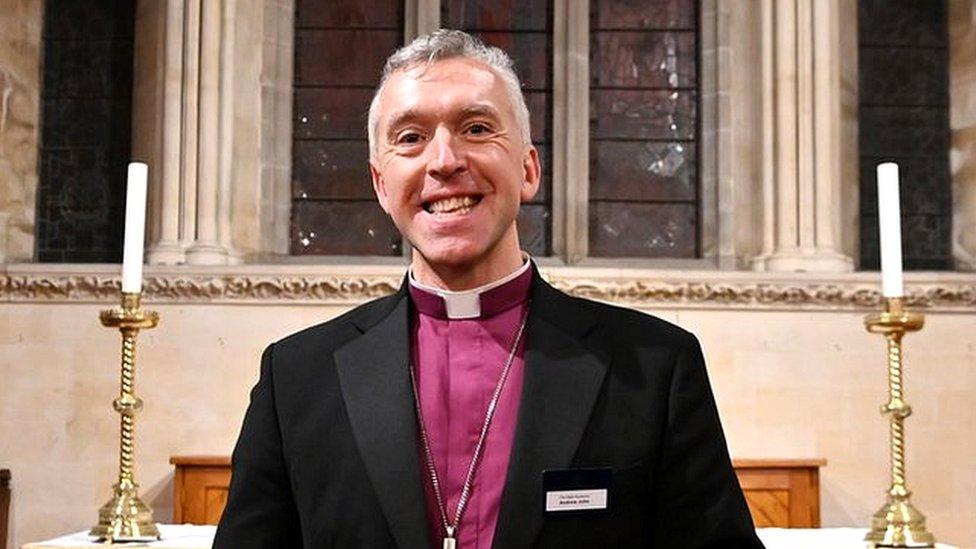LGBT Church of Ireland members welcome same-sex marriage statement
- Published

A group representing LGBT members of the Church of Ireland has welcomed a change from the Anglican Communion to a major statement on same-sex marriage.
Ahead of the global Lambeth Conference, the communion had defined marriage as "between a man and a woman".
But that statement has now been altered to say that some Anglican churches have welcomed "same-sex union/marriage".
Changing Attitude Ireland (CAI) said the Church of Ireland's silence on the controversy was disturbing.
When contacted by BBC News NI, the Church of Ireland said its bishops would "participate in the debates and discussions that take place at the conference".
"All of our bishops have been invited to attend the conference, and would plan to attend unless this is not possible due to personal circumstances," they said.
'Not permissible'
The Lambeth Conference takes place every 10 years and is a major gathering of more than 600 Anglican bishops from across the world.
Hosted by the Archbishop of Canterbury Justin Welby, it began in Kent on 26 July and lasts for 12 days.
At the conference a series of statements - or "calls" - are put to bishops and discussed.
But a draft statement on human dignity published ahead of the conference said that "it is the mind of the Anglican Communion as a whole that same gender marriage is not permissible".

The Lambeth statement was changed by the Anglican church at the last minute
It added that "legitimising or blessing of same-sex unions" cannot be advised, and "it is the mind of the communion to uphold 'faithfulness in marriage between a man and a woman in lifelong union'".
But that led to protests from a number of Anglican congregations from around the world, including the Anglican Church in Wales and the Scottish Episcopal Church.
On Tuesday the Lambeth statement was changed by the Anglican Communion at the last minute.
"Many provinces continue to affirm that same gender marriage is not permissible," the revised statement said.
"Lambeth Resolution I.10 (1998) states that the "legitimizing or blessing of same sex unions" cannot be advised.
"Other provinces have blessed and welcomed same sex union/marriage after careful theological reflection and a process of reception."
'Hurt and division'
Changing Attitude Ireland, a long-standing advocacy group for LGBT members of the Church of Ireland, told BBC News NI the change was welcome but there were still questions about "who originally drafted such a call and on what basis".
But CAI also said that it "deplored" that an Anglican resolution passed in 1998 that "the legitimising or blessing of same sex unions cannot be advised" had been "brought up for discussion once again" in 2022.
They said that had caused "hurt and division".

The CAI are calling for the Church of Ireland to engage with them about equal inclusion for its LGBT+ members
"The Church of Ireland House of Bishops' silence on this extremely unsettling matter, in contrast to many other Anglican Churches throughout the world, is particularly disturbing," the CAI statement continued.
"It could be asked whether they are hoping that by avoiding the topic of LGBT+ inclusion, the issue will magically disappear.
"We call on the Church of Ireland, and its House of Bishops, to now engage with us on the issue of welcome and equal inclusion for its LGBT+ members."
What do other churches think of same-sex marriage?
The Church of Ireland and the Church of England do not currently permit same-sex marriage, but both accept LGBT people as full members.
The Scottish Episcopal Church - which is an Anglican church - voted to allow same-sex marriage in 2017.
The Church in Wales approved a service of blessing for same-sex couples in 2021.
The Presbyterian Church in Ireland has a policy that anyone in a same-sex relationship cannot be a full member of the Church.
In 2018, it also voted to loosen its ties with the Church of Scotland due to its more liberal attitude to same-sex relationships.
Meanwhile, the Methodist Church in Ireland also only permits marriages between a man and a woman, in contrast to the Methodist Church in Britain.
Related topics
- Published30 June 2022

- Published30 April 2022
